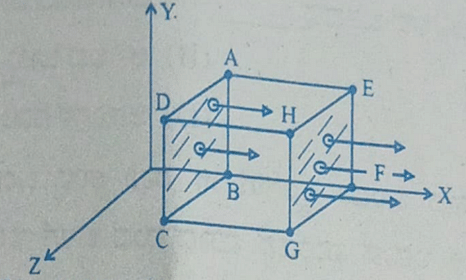Question:
If A and B are mutually exclusive events , given that $P(A) = \frac{3}{5} , P(B) = \frac{1}{5}$, then P(A or B) is
If A and B are mutually exclusive events , given that $P(A) = \frac{3}{5} , P(B) = \frac{1}{5}$, then P(A or B) is
Updated On: May 22, 2024
- 0.8
- 0.6
- 0.4
- 0.2
Hide Solution
Verified By Collegedunia
The Correct Option is A
Solution and Explanation
Given $P(A) = \frac{3}{5}$ and $P(B) =\frac{1}{5}$
P(A or B) = P(A $\cup$ B) = P(A) + P(B) (because A and B are mutually exclusive)
$ = \frac{3}{5} + \frac{1}{5} = \frac{4}{5} = 0.8 $
P(A or B) = P(A $\cup$ B) = P(A) + P(B) (because A and B are mutually exclusive)
$ = \frac{3}{5} + \frac{1}{5} = \frac{4}{5} = 0.8 $
Was this answer helpful?
0
0
Top Questions on Multiplication Theorem on Probability
- There are three bags $B_1, B_2$ and $B_3$. The bag $B_1$ contains 5 red and 5 green balls, $B_2$ contains 3 red and 5 green balls, and $B_3$ contains 5 red and 3 green balls. Bags $B_1, B_2$ and $B_3$ have probabilities $\frac{3}{10}, \frac{3}{10}$ and $\frac{4}{10}$ respectively of being chosen. A bag is selected at random and a ball is chosen at random from the bag. Then which of the following options is/are correct?
- JEE Advanced - 2019
- Mathematics
- Multiplication Theorem on Probability
- Four men and three women are standing in a line for railway ticket. The probability of standing them in alternate manner is
- UPSEE - 2016
- Mathematics
- Multiplication Theorem on Probability
- Three of the six vertices of a regular hexagon are chosen at rondom. The probability that the triangle with three vertices is equilateral, equals
- IIT JEE - 1995
- Mathematics
- Multiplication Theorem on Probability
- Two dice are tossed 6 times. Then the probability that 7 will show an exactly four of the tosses is:
- Mathematics
- Multiplication Theorem on Probability
- The probability that A speaks truth is $\frac{4}{5}$ , while the probability for B is $\frac{3}{4}$. The probability that they contradict each other when asked to speak on a fact is
- Mathematics
- Multiplication Theorem on Probability
View More Questions
Questions Asked in KCET exam
- The current in a coil changes from 2A to 5A in 0.3s. The magnitude of emf induced in the coil is 1.0V. The value of self-inductance of the coil is
- KCET - 2023
- Electromagnetic induction
- A stretched wire of a material whose Young's modulus Y = 2 × 1011 Nm-2 has Poisson's ratio of 0.25. Its lateral strain εl = 10-3. The elastic energy density of the wire is
- KCET - 2023
- mechanical properties of solids
- A particle moves along the curve \(\frac{x^2}{16}+\frac{y^2}{4}=1\). When the rate of change of abscissa is 4 times that of its ordinate, then the quadrant in which the particle lies is
- KCET - 2023
- Conic sections
- A point object is moving at a constant speed of 1 ms-1 along the principal axis of a convex lens of focal length 10cm. The speed of the image is also 1 ms-1 , when the object is at _______ cm from the optic centre of the lens.
- KCET - 2023
- spherical lenses
- A cubical Gaussian surface has side of length a = 10 cm. Electric field lines are parallel to x-axis as shown. The magnitudes of electric fields through surfaces ABCD and EFGH are 6kNC-1 and 9kNC-1 respectively. Then the total charge enclosed by the cube is
[Take ε0 = 9 × 10-12 Fm-1]
- KCET - 2023
- Gauss Law
View More Questions
Concepts Used:
Multiplication Theorem on Probability
In accordance with the multiplication rule of probability, the probability of happening of both the events A and B is equal to the product of the probability of B occurring and the conditional probability that event A happens given that event B occurs.
Let's assume, If A and B are dependent events, then the probability of both events occurring at the same time is given by:
\(P(A\cap B) = P(B).P(A|B)\)
Let's assume, If A and B are two independent events in an experiment, then the probability of both events occurring at the same time is given by:
\(P(A \cap B) = P(A).P(B)\)
Read More: Multiplication Theorem on Probability



